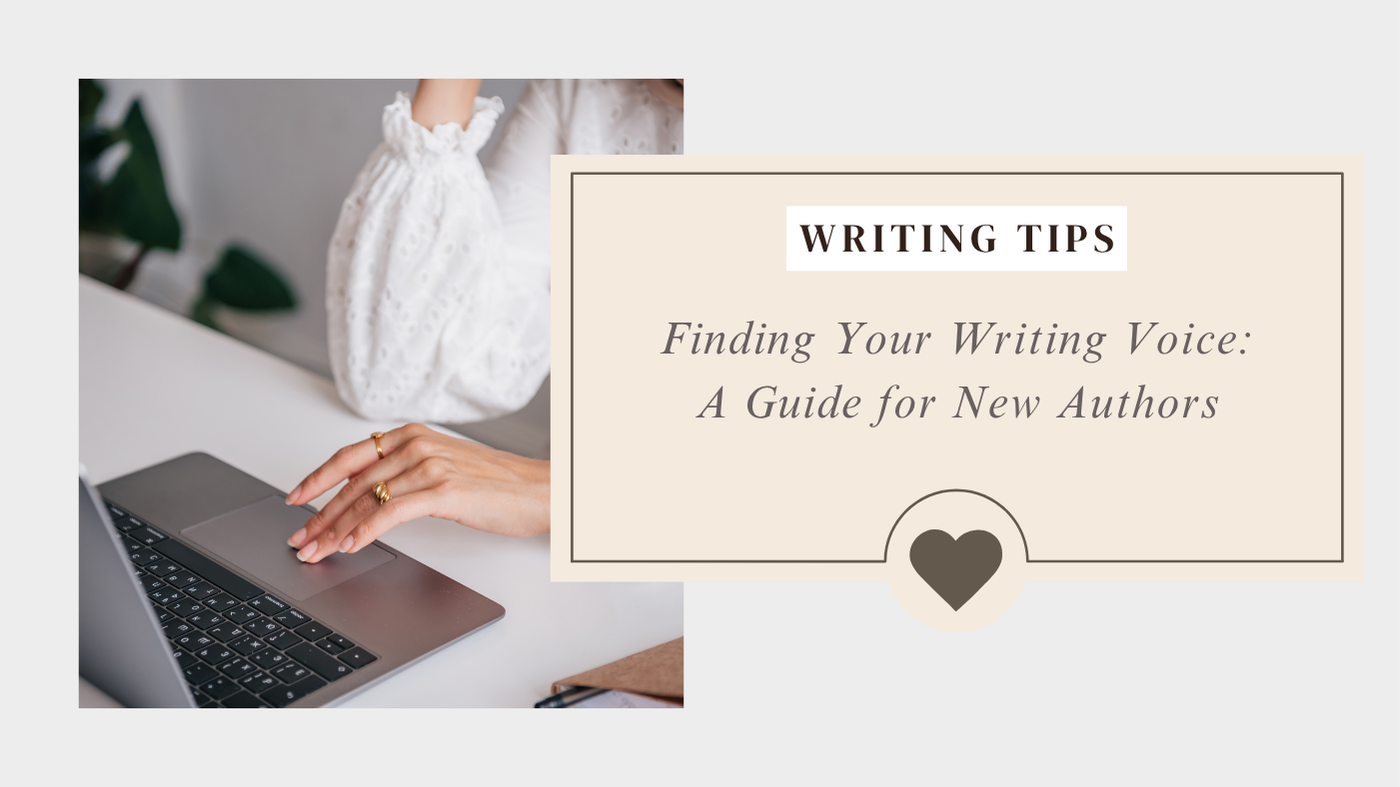
Finding Your Writing Voice: A Guide for New Authors
Every writer worries about it: “What if my work doesn’t sound original enough?” You can outline chapters, polish grammar, and brainstorm endlessly, but until you discover your unique writing voice, you may feel like you’re just imitating your favorite authors.
The good news? Your writing voice already exists — it just needs space to grow. This guide will help you understand what “voice” really means, why it matters, and how you can uncover yours without forcing it.
What Is a Writing Voice, Really?
Your writing voice is the personality of your words. It’s the rhythm, tone, and perspective that make your writing feel yours. Just like a musician can play the same song but sound different, two authors can write the same scene and give it a completely unique flavor.
J.K. Rowling blends whimsy with tension.
Ernest Hemingway cuts to the bone with sparse sentences.
Elizabeth Gilbert writes with warmth, openness, and curiosity.
Your voice is your fingerprint. Readers connect to it even more than your plot twists.
Why Finding Your Voice Matters
It makes you stand out — Publishing is crowded. A clear voice helps readers remember you.
It builds trust — When your voice feels authentic, readers sense honesty and connection.
It keeps you consistent — A strong voice guides you through rewrites and helps marketing feel natural.
How to Discover Your Voice
- Read Like a Writer
Notice how your favorite authors use humor, pacing, or description. Ask yourself: which techniques resonate with you? Which don’t? What feels natural for you to try in your own work?
Exercise: Copy out a paragraph from a book you love. Then rewrite it in your own words. Compare the rhythm and see how your natural tendencies differ.
- Freewrite Without Editing
Set a timer for 15 minutes. Write about anything — your morning coffee, your worst haircut, your dream vacation. Don’t edit, don’t delete. Your unfiltered writing reveals your natural voice.
- Pay Attention to How You Speak
Your natural storytelling style shows up when you talk to friends. Do you lean toward humor? Are you dramatic? Do you use vivid detail or keep it simple? Record yourself telling a story out loud, then transcribe it. That’s a clue to your voice.
- Experiment With Point of View
Voice isn’t just about style — it’s also about perspective. Try rewriting the same scene in first person, third person limited, and omniscient. Notice which feels most natural.
- Journal Daily
Your journal isn’t meant for an audience, so your authentic voice often shows up there. Over time, patterns emerge: the words you favor, the rhythm of your sentences, the emotions you emphasize.
Common Myths About Writing Voice
Myth: You have to “invent” your voice.
Truth: Your voice is already there; writing reveals it.
Myth: Your voice should mimic bestselling authors.
Truth: Imitation can help you learn, but readers want your perspective.
Myth: Your voice never changes.
Truth: Like any craft, your voice grows with practice, age, and new experiences.
How to Strengthen Your Writing Voice
Write regularly — Volume builds confidence. The more you write, the clearer your voice becomes.
Share with trusted readers — Ask, “How would you describe my writing style?” You may learn how others perceive your voice.
Avoid over-polishing — Too much editing can sand away your uniqueness. Keep some of your quirks; they make your voice memorable.
Lean into your strengths — If humor comes naturally, let it shine. If you’re good at description, use it.
Examples of Strong Author Voices
Neil Gaiman: Dark yet whimsical, often blending fairy-tale cadence with modern wit.
Maya Angelou: Rich, lyrical, deeply emotional.
Stephen King: Conversational, approachable, with bursts of chilling imagery.
Notice: none of these voices are “perfect.” They’re authentic.
The Takeaway
Finding your writing voice isn’t about copying others or achieving perfection. It’s about listening to yourself — in your freewriting, your speech, your journaling — and embracing the quirks that make your words yours.
Readers don’t just fall in love with stories; they fall in love with storytellers. When your voice shines through, you stop sounding like “a writer” and start sounding like you.

